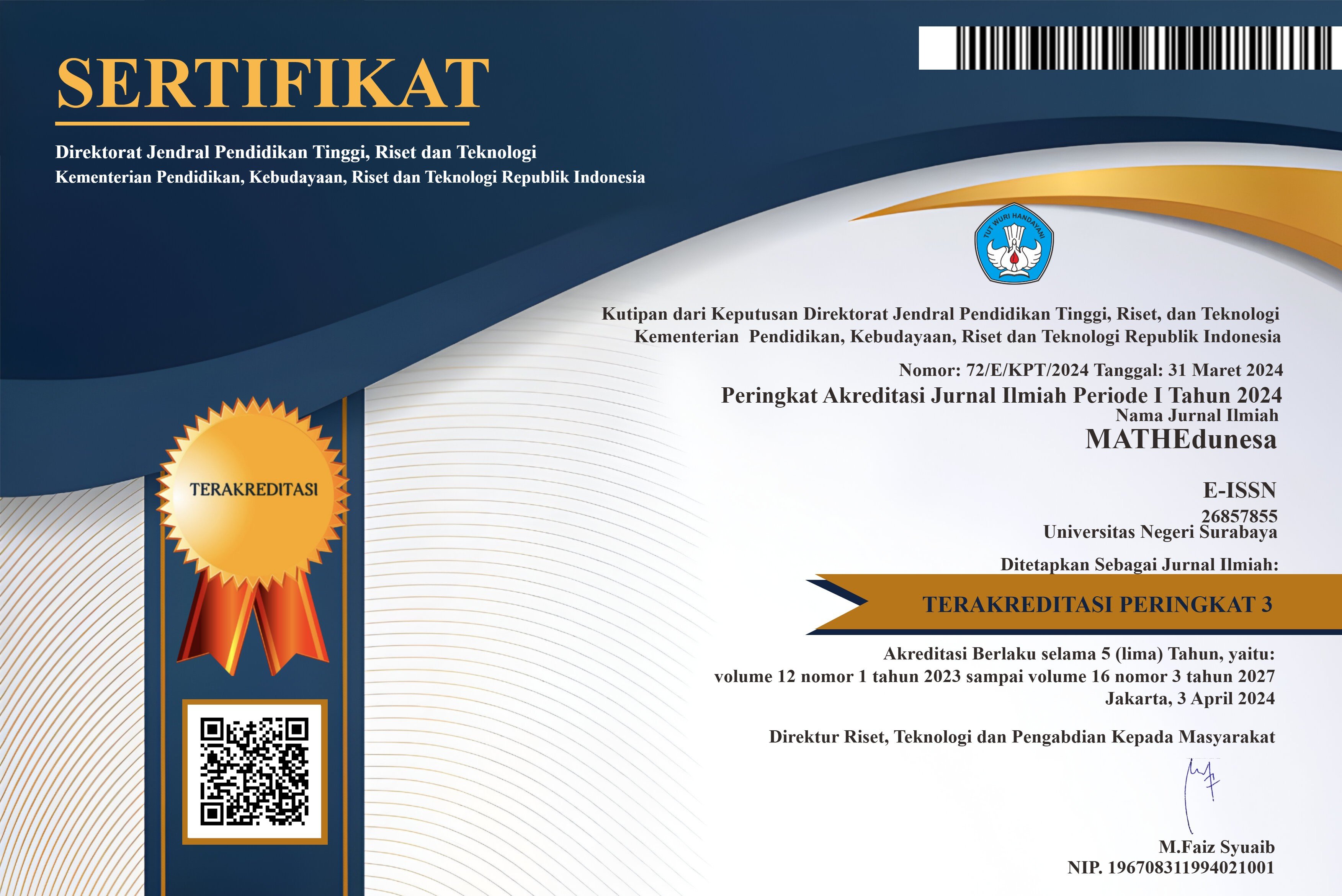Analisis Kemampuan Pemecahan Masalah Siswa dalam Menyelesaikan Soal Ill-Structured Problem Ditinjau dari Kemampuan Matematika pada Materi Aritmatika Sosial
DOI:
https://doi.org/10.26740/mathedunesa.v13n2.p468-498Abstract
This study aims to describe the problem solving ability of students with different mathematical abilities (high, medium, low) in solving ill structured problems of social arithmetic material. This research used a qualitative approach with descriptive research type. For the research subject, the researcher chose three seventh grade students at Labschool Unesa 2 Junior High School with different levels of mathematical ability (high, medium, low) and the same gender. Researchers used math ability tests, problem solving tests, and interviews to collect data. The mathematics ability test data was analyzed based on the range of student ability grouping Ratumanan and Laurens (2006), the problem solving test data was analyzed using Polya's problem solving ability indicators, and the interview data was analyzed using data triangulation (data reduction, data presentation, conclusion drawing). The results show that students with high mathematical ability have analyzed the problem well because students can consider all solutions to the problems given and the assumptions made by students are relevant to real life. Students have also entered the category of good problem solving skills. Meanwhile, students with medium and low mathematics ability have not been able to analyze the problem well because students only think of part of the solution to the problem given and the assumptions made by students are not relevant to real life. Students with moderate mathematical ability fall into the category of fairly good problem solving ability. Then students with low mathematics ability fall into the category of poor problem solving ability. These results can be used as an evaluation in the learning process or a reference for further research.
Downloads
Downloads
Published
Issue
Section
 Abstract views: 209
,
Abstract views: 209
, PDF Downloads: 235
PDF Downloads: 235




